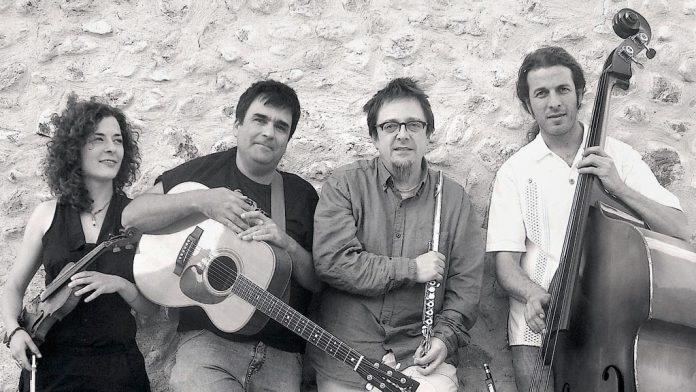When I was growing up, folk music was more than just a kind of quaint exotic pretty music to which people listened. It was also a vehicle through which people could ground themselves in the remnants of traditional cultures that were still able to survive the sensory distortion that was so present in modern technological society. It was also a way that people could bond with one another using folk music as a form of emotional template. Folk music did this because traditional folk music as well as tradition-inspired folk music are a very pure form of primary experience with a lot of organic stimulation that is generated by the people performing the music.
But one other factor is critically important. People have to not only be able to generate the primary experience and the organic stimulation with their singing and their playing of different folk instruments. They have to be able to fully absorb what is being generated.
We can say that the fifties, sixties and seventies was a time of experiential transition. Bob Dylan played a very important role in gradually moving people away from traditional folk music. It was a revolutionary act of defiance, when he brought his electric guitar to accompany himself at the famous Newport Folk Festival. Many people were entranced by what he was doing, while others who were more traditional folkies were very upset. Gradually, he shifted a lot of people away from folk music into what came to be known as soft rock. And then, many of those people shifted into hard rock. With this shift, there was no pretense anymore of maintaining any kind of allegiance to folk music for many of its original adherents.
So, what was really going on here. I believe that if Bob Dylan hadn’t shifted a lot of people away from folk music, someone else would have done it. Or some other group or some other situation. Because as machines like television and computers and video games and smartphones and, of course, electrical musical instruments started taking over particularly young people’s lives, the machines started to act more and more like mirrors and models for these young people. The young people started to respond more and more to the abrasive defined discrete stimuli of some machines and to the frictionless mediated vacuum machines of others, neither of which, of course, didn’t fit into their mammalian natures. As this happened, they developed greater difficulty as human beings in absorbing the flowing, blendable, continual organic stimuli of the more traditional natural living environments. And so, of course, activities which involved a lot of primary experience and organic stimuli were not very well absorbed. As their daily life experience became increasingly transformed, people lost their capacity to effectively absorb psychologically the organic stimulation they really needed in order to survive properly as mammals. And as they started to rely more and more on defined discrete mechanical and later digital stimulation in order to pull out of the numbness that surrounded them as a result of living in modern technological society, they became more and more robotized, more like a cyborg. Such a transformation created a state of mind which would be more attracted to and more capable of absorbing the defined discrete stimuli of modern popular music with its emphasis on loud electronic musical instruments than the flowing blendable continual stimuli of folk music with its emphasis on traditional acoustic musical instruments. With the electronic musical instruments, the amplification is so loud that it is deafening. But that is the way it has to be for people who are desirous of pulling themselves out of the experiential vacuum of modern technological society. Abrasive stimuli are what they crave.
This article has been written from the point of view of folk music in the United States. There is a famous folk music school in Chicago called the Old Town School of Folk Music. It has continued to exist since the 1960’s. It has certainly gotten bigger and more successful financially. But a closer examination reveals that much of the music being taught is not folk music at all. For example, the Beatles are very popular there. It is fine that people want to study the Beatles. But not in a folk music school. When all is said and done, the Beatles are part of a transition to the loud electronic music that came in with sensory distortion. Granted they aren’t as abrasive as the Rolling Stones and Heavy Metal groups, but their electronic instruments certainly make them loud.
Oh well! It is hard for people to escape the musical influences in today’s world of electronic instruments. And visual influences of strobe lights. Which tend to break people up into a series of visual fragments. Which is what people begin to feel themselves as they experience the abrasive music of today.


























